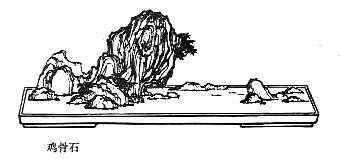道
德
經
Dao De Jing 
 – The Way and Its Power
– The Way and Its Power
The naturalist, individualist and politic doctrine of Lao-tse exhibited in 81 poetic and obscure texts. Tr. Waley (en), Lau (en), Julien (fr) and Wilhelm (de).
| 1 | 2 | 3 | 4 | 5 | 6 | 7 | 8 | 9 | 10 | 11 | 12 | 13 | 14 | 15 | 16 | 17 | 18 | 19 | 20 | 21 | 22 | 23 | 24 | 25 | 26 | 27 | ||
| 28 | 29 | 30 | 31 | 32 | 33 | 34 | 35 | 36 | 37 | 38 | 39 | 40 | 41 | 42 | 43 | 44 | 45 | 46 | 47 | 48 | 49 | 50 | 51 | 52 | 53 | 54 | ||
| 55 | 56 | 57 | 58 | 59 | 60 | 61 | 62 | 63 | 64 | 65 | 66 | 67 | 68 | 69 | 70 | 71 | 72 | 73 | 74 | 75 | 76 | 77 | 78 | 79 | 80 | 81 |
Daodejing I. 16.
第 一 十 六 Section Dao – Chapter XVI
Push far enough towards the Void,
Hold fast enough to Quietness,
And of the ten thousand things none but can be worked on by you.
I have beheld them, whither they go back.
See, all things howsoever they flourish
Return to the root from which they grew.
This return to the root is called Quietness;
Quietness is called submission to Fate;
What has submitted to Fate has become part of the always so.
To know the always-so is to be Illumined;
Not to know it, means to go blindly to disaster.
He who knows the always-so has room in him for everything;
He who has room in him for everything is without prejudice.
To be without prejudice is to be kingly;
To be kingly is to be of heaven;
To be of heaven is to be in Tao.
Tao is forever and he that possess it,
Though his body ceases, is not destroyed.
Waley 16
人的心本是虚明的、宁静的。但往往为私欲所蒙蔽, 因而观物不得其正, 行事则失其常。所以我们要尽力使心回到虚明、宁静的状态。这样就能看清万物蓬勃生长, 看出往复循环的道理。万物纷纷芸芸, 各自回到它的根本。归根叫做静, 静则复命, 即恢复到不生不灭的状态, 保持在常态, 因而又叫常。了解“常”的道理叫做“明”。不了解“常”的道理而轻举妄动就会有祸害。了解“常”的人是无所不包, 能坦然大公, 就能做到公正, 就能合乎自然, 就能合于道。因而就能常久不殆。
白话翻译
I do my utmost to attain emptiness;
I hold firmly to stillness.
The myriad creatures all rise together
And I watch their return.
The teaming creatures
All return to their separate roots.
Returning to one's roots is known as stillness.
This is what is meant by returning to one's destiny.
Returning to one's destiny is known as the constant.
Knowledge of the constant is known as discernment.
Woe to him who wilfully innovates
While ignorant of the constant,
But should one act from knowledge of the constant
One's action will lead to impartiality,
Impartiality to kingliness,
Kingliness to heaven,
Heaven to the way,
The way to perpetuity,
And to the end of one's days one will meet with no danger.
Lau 16
Celui qui est parvenu au comble du vide garde fermement le repos.
Les dix mille êtres naissent ensemble ; ensuite je les vois s'en retourner.
Après avoir été dans un état florissant, chacun d'eux revient à son origine.
Revenir à son origine s'appelle être en repos.
Être en repos s'appelle revenir à la vie.
Revenir à la vie s'appelle être constant.
Savoir être constant s'appelle être éclairé.
Celui qui ne sait pas être constant s'abandonne au désordre et s'attire des malheurs.
Celui qui sait être constant a une âme large.
Celui qui a une âme large est juste.
Celui qui est juste devient roi.
Celui qui est roi s'associe au ciel.
Celui qui s'associe au ciel imite le Tao.
Celui qui imite le Tao subsiste longtemps ; jusqu'à la fin de sa vie, il n'est exposé à aucun danger.
Julien 16
Schaffe Leere bis zum Höchsten!
Wahre die Stille bis zum Völligsten!
Alle Dinge mögen sich dann zugleich erheben.
Ich schaue, wie sie sich wenden.
Die Dinge in all ihrer Menge,
ein jedes kehrt zurück zu seiner Wurzel.
Rückkehr zur Wurzel heißt Stille.
Stille heißt Wendung zum Schicksal.
Wendung zum Schicksal heißt Ewigkeit.
Erkenntnis der Ewigkeit heißt Klarheit.
Erkennt man das Ewige nicht,
so kommt man in Wirrnis und Sünde.
Erkennt man das Ewige,
so wird man duldsam.
Duldsamkeit führt zur Gerechtigkeit.
Gerechtigkeit führt zur Herrschaft.
Herrschaft führt zum Himmel.
Himmel führt zum SINN.
SINN führt zur Dauer.
Sein Leben lang kommt man nicht in Gefahr.
Wilhelm 16

The Way and Its Power – Dao De Jing I. 16. – Chinese on/off – Français/English
Alias Daode Jing, Dao De Jing, Tao Te Ching, Tao Teh Ching, le Tao-tö-king, Lao-Tzu Te-Tao Ching, the Laozi, Lao Zi, the Lao Tze, le Lao-tseu, The Book of the Way and its Virtue, the Way and its Power.
The Book of Odes, The Analects, Great Learning, Doctrine of the Mean, Three-characters book, The Book of Changes, The Way and its Power, 300 Tang Poems, The Art of War, Thirty-Six Strategies
Welcome, help, notes, introduction, table.
Index – Contact – Top
